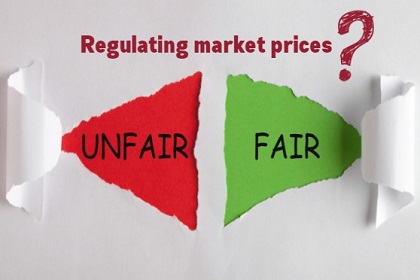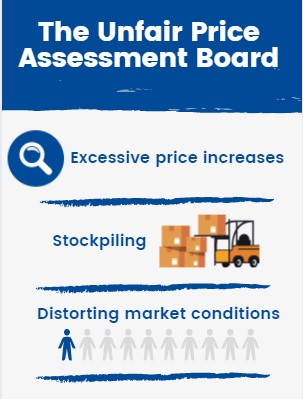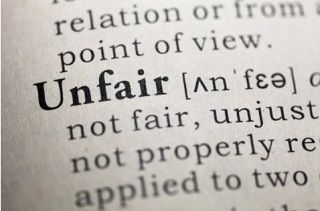Tracking the prices is an integral element of any shopping activity. Whether you are in the supermarket filling your basket with groceries or in the cosmetics shop picking up a lovely box of personal care products, keeping an eye on the price tags is a critical reflex. As COVID-19 keeps testing the global supply chain's limits, the average consumer becomes even more interested in the fluctuation of prices, especially in the ever-essential FMCG sector. With the added flexibility of online shopping, it is easier than ever to compare prices and get the best bang for the buck.
However, 2020 showed us once again that regulators are as interested in the prices as the consumers. The pandemic's early months featured a shopping-frenzy, and consumers tended to stock up their essential needs in fear of exiguity. This sharp increase in demand inflated the prices, especially for personal protection and hygiene products such as hand sanitizers or facemasks. In response to these developments, Turkey established an ad hoc regulatory board to tackle the unfair pricing issues and ensure consumers' welfare. Walking on the thin ice, this regulatory board takes up the paradoxical challenge of inspecting and indirectly regulating the prices within the framework of a free-market economy. Against this backdrop, we have assessed this regulatory initiative's establishment and functionality from a law and economics perspective.
Formation of the Unfair Pricing Assessment Board

In May 2020, Turkey officially established the Unfair Price Assessment Board ("Board"), which is governed by the Regulation on Unfair Price Assessment Board ("Regulation")1. The board's primary aim is to investigate and penalize unreasonable price increases and stockpiling practices to distort the market conditions.
When we assess the legal framework, we see that the application's scope effectively covers all manufacturers, suppliers, and retail businesses. Accordingly, market players are required to refrain from increasing their prices excessively or unreasonably. They are also prohibited from activities that disrupt the free competition in the market and restrict the consumers' access to goods by limiting the output.
The Regulation provides that the Board will operate in cases of emergency, disaster, or economic fluctuation. Although the relevant provision's wording limits the Board's operational scope, the triggering events are described broadly and uncertainly. In other words, the situations that may fall within the scope are not definitive, and there is a legislative elbowroom to justify the board's activities. Under the Regulation, the Board's responsibilities include;
- Taking measures to protect the market balance and consumers from excessive price increases and stockpiling practices,
- Conducting inspections and examinations to tackle excessive price increase and stockpiling practices,
- Gathering the statement of the manufacturer, supplier, and retail businesses regarding these inspections and examinations,
- Imposing administrative fines within the framework of Article 18/1 (l) of the Law on Manufacturers, Suppliers and Retail Businesses ("Law") that are found to act in violation of the obligations specified in Annex Article 1 of the Law,
- Determining the principles and rules regarding exorbitant price increase and stockpiling practices, and
- to fulfill other duties given by the Ministry of Trade regarding exorbitant price increase and stockpiling practices.

Concerning the investigation procedures, we see that the investigated parties are entitled to defend themselves. Accordingly, the parties will have seven days to respond to the Board's request and submit their defense. The defense period may be extended for another seven days.
In its assessment, the Board will consider the scope of the infringing behavior and the type, size, and sector of the business, the benefit derived from the infringement, and whether the relevant parties have been fined before. Violation of Additional Article 1(1) of the Law (i.e., excessive price increases) will be subject to a monetary fine in the range of TL 10.000 - TL 100.000 (approximately USD 1.500 - 15.000). Violation of Additional Article 1(2) (i.e., preventing customer access to the goods by distorting the competition and market balance) will be subject to a monetary fine in the range of TL 50.000 - TL 500.000 (approximately USD 7.000 - 70.000). The Ministry may also announce the board's enforcement actions to inform the public and protect the economic interests of the related parties. Lastly, although the relevant legislation provides the investigated parties with a chance to submit their defenses, such defense process's procedural details are not duly set forth.
An economic assessment of the Unfair Pricing Assessment Board
In the era of online shopping and price comparison, the FMCG firms' pricing behaviors are more transparent than ever. When we combine this with the seemingly infinite choice of products on offer, we see that the customers can switch from one brand to another if they are not satisfied with the pricing. From a free and competitive market perspective, customer choices should be the primary regulator of the prices. In other words, interfering with the formation of the prices without an extraordinary justification to do so may diminish the free market economy's functionality.

However, the COVID-19 pandemic has resulted in significant price increases in many goods that are in high demand. Besides, the alarming level of the pandemic has temporarily distorted many supply chains. That suggests both demand and supply shocks, which have contributed to the price increases. In many parts of the world, governments proceeded to price regulations and export restrictions to cap the prices and ensure the availability of some high-demand products, such as masks, hand sanitizers, disinfectants, etc. During times of disaster or emergency, those are the measures that are necessary for survival and alleviate the problems caused by the crisis. But continuously auditing the prices with an uncertain range of products may cause severe efficiency problems in the economy.
A price increase may be abnormal from an economic perspective if there is no economic explanation concerning the product supplied. It hurts the consumers and leaves supernormal profit to the supplier(s) of the product2. If such a price increase results from collusion or unilateral conduct, it may be investigated under the competition law by competition authorities.
In Turkey, by the Turkish Competition Authority ("TCA"), the prohibition of excessive pricing applied to monopolies or de-facto monopolies mainly in infrastructural industries, such as energy, shipping ports, etc. In those few cases, either the dominant firm is a legal monopoly, or a legal pricing proxy that is defined by a regulation. Therefore, the debate is focused on if the existing prices are abusive or not. Once the prices were discovered as higher, a self-correcting mechanism had not been expected. However, excessive pricing conduct is one of the controversial topics in the field of competition law. Therefore, a two-stage test has been employed to prove the abnormality of the prices. The test involves comparing actual prices with actual costs in the first stage and comparing the prices of rival prices across markets in the second stage. In order to avoid distortive effects in the market, after such a complex test the decision is made.
Authorities such as Unfair Pricing Assessment Board should have a limited role in extraordinary situations and for a restricted number of goods. Otherwise, the formation of market price, which usually relies on the interaction of supply and demand, may send false signals for the value of goods and services. For instance, artificially lower prices may damage the markets' self-correcting mechanism and render them unattractive for new entrants and investments.
In summary, during disaster or emergency times, price regulations may favor the consumers and increase certain products' availability. However, the scope and the duration of those applications are critical for creating current prices and price signals for future investments. In case of overuse, today's consumer gains may easily lead to tomorrow's social loss.
Footnotes
1 Published on the Official Gazette dated 28 May 2020 and numbered 31138.
2 See, MOTTA, M., & DE STREEL, A. (2007). Excessive Pricing in Competition Law: Never say Never? In The Pros and Cons of High Prices (pp. 14–46). Swedish Competition Authority. https://doi.org/10.7554/eLife.02370
The content of this article is intended to provide a general guide to the subject matter. Specialist advice should be sought about your specific circumstances.


